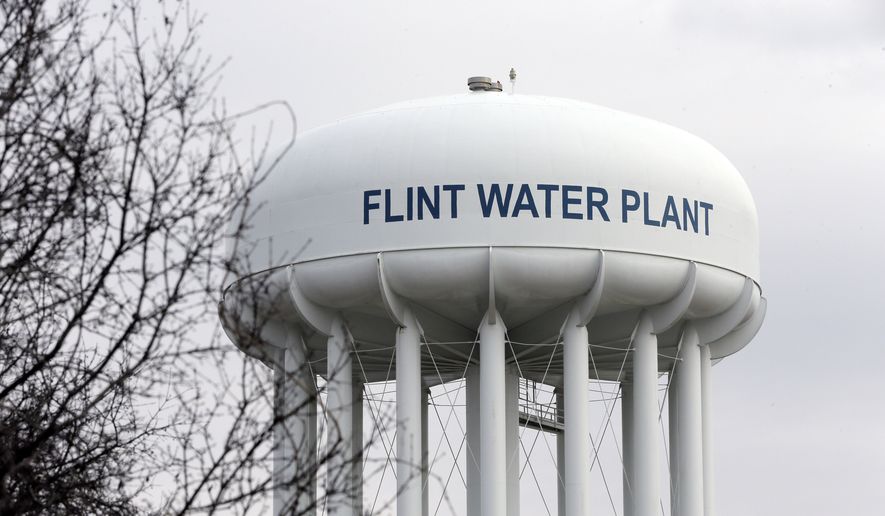ANALYSIS/OPINION
As the proud owner of TV station WEYI, NBC-25 in Flint, Michigan, it is important for us to understand the community and to become a part of it as much as we can. As a station owner, we can elevate the needs and concerns of the downtrodden, hold those in power accountable and showcase the resilience of Flint. It’s a responsibility that we don’t take lightly.
We read about the water crisis facing Flint and the failure of the people in power and were appalled. It was the failure of government that abandoned the most vulnerable, leaving them with many unanswered questions. I even added my perspective on the crisis in these pages. But that wasn’t enough. I wanted to feel the emotions on the ground, to understand the crisis through firsthand experience because, too often in reporting, the people are ignored for political spin.
When we first arrived Feb. 29, we went straight to City Hall, where many were searching for answers. It was at the “counter for free water filters” that we met a young single mother — who is also a student — and her young daughter. The mother relayed to us a story about how her daughter had elevated levels of lead. She was at a loss for what to do, but she knew she had to get the water filters for her daughter. She was worried about her daughter’s future and what could she do as a mother to improve her chances. We had no answers, but we did have empathy, and we genuinely cared, and it was obvious that the mother appreciated that someone wanted to hear her story. My heart goes out to her and her daughter, and reminded me that this is not a temporary crisis, but one that will reverberate throughout Flint for a generation, if not more.
City Hall was littered with people who wanted their stories heard. All the people we met in City Hall wanted answers, but more importantly, they were there to try as best as they could to help the community they love. This is how we started to love the people of Flint.
From City Hall we went to a firehouse where National Guard troops were standing outside on a cold, damp day handing out cases of water to anyone who drove up. They did not complain about the weather or the heavy lifting or about being on their feet all day. We watched and even participated in loading the water into cars. We spoke to as many of the drivers as possible to hear their stories. Most came daily to pick up multiple cases of water; many had children; most did not have the money to move away. Speaking to so many drivers told us why the National Guard did not complain about being outside in the freezing cold — they were the lucky ones.
After spending time with people at the firehouse, we wanted to see firsthand the living conditions in a city where 40 percent of the population lives below the poverty line, and with what seemed like abandoned houses on every block. A couple of people welcomed our team into their homes. There we saw firsthand what it was like not to be able to take hot baths or drink water from the tap. We saw cases upon cases of water stacked up everywhere the eye could see. We heard tales about how it took hours to fill up baths with enough clean hot water. A hot bath, something we take for granted, was so precious to them.
They also relayed to us how many of their neighbors did not own cars, so they could not go to the fire stations to pick up the water. Instead, the community pitched in. Those with cars drove those without cars, or just picked up a couple of extra cases for the elderly or infirm.
After witnessing the strength of the people, we headed to a town hall meeting my NBC25 station was hosting. We had elected officials, doctors and professors all gathered to talk with the community about the water crisis. The goal was to bring together the community so the citizens could have their voices heard and so people could learn what they could do to help. So many of the people we encountered wanted to help, but lack of guidance and a lack of answers hindered that.
The auditorium was nearly packed, and from the first question, it was evident that the residents were sick of excuses and wanted action. There was blame enough to go around, but instead of blame, the citizens wanted answers. On a couple of occasions, emotions rose to a fever pitch — and for good reason. After being in Flint for nearly 12 hours digging into the issue, I found myself getting upset.
I saw the pain and suffering they were enduring, and I experienced the hopelessness they felt. No one had answers. No one told us when the crisis would be resolved, how the city was going to deal with the long-term health issues, when they would be able to drink the water or when the pipes were going to be replaced. There was nothing we could do at the moment to help other than listen to the citizens and give them a platform.
The people of Flint deserve better. The elected officials need to stop seeking blame and start seeking solutions. They need to act now, because the people of Flint cannot wait any longer. The government failed them when it created the crisis, and is failing now with their lack of response.
• Armstrong Williams is manager and sole owner of Howard Stirk Holdings I & II Broadcast Television Stations and executive editor of American CurrentSee online magazine.
• Armstrong Williams can be reached at 125939@example.com.




Please read our comment policy before commenting.